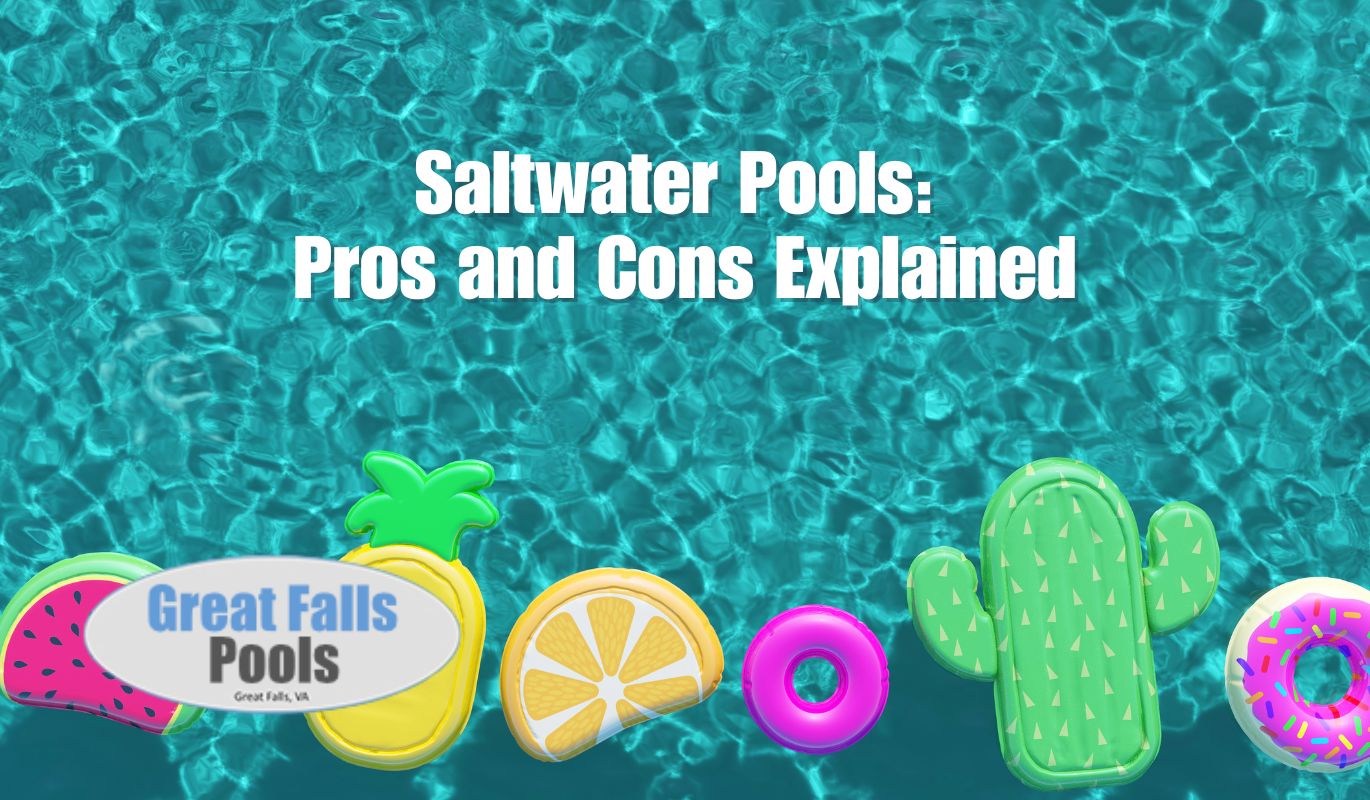Thinking about upgrading to a saltwater pool? You’re not alone. Many pool owners are making the switch, drawn in by the promise of softer water, fewer chemicals, and easier upkeep. But like any big change, saltwater pools come with trade-offs. Let’s look at the full picture so you can decide if it’s the right choice for your backyard.
What Is a Saltwater Pool?
A saltwater pool is similar to a traditional chlorine pool, but with one big difference—how it gets its chlorine. Instead of adding chlorine tablets or liquid directly to the water, a saltwater pool uses a salt chlorine generator. This device converts dissolved salt into chlorine automatically, keeping the water clean without the need for constant chemical handling.
You simply add salt to the pool at a low level, and the system takes care of the rest. The result is more consistent chlorine levels and water that feels smoother and less harsh on your skin.
What Does Saltwater Feel Like?
Despite the name, saltwater pools don’t feel like the ocean. In fact, the salt concentration is only about one-tenth of seawater. According to U.S. News, “It’s called a saltwater pool because you add salt to the water at a level high enough to allow the machine to function, which also makes the water feel silkier. The ‘salt water’ is about 1/10 the salinity level of the ocean. They don’t taste salty like the ocean.”
Most swimmers say the water feels softer, cleaner, and more refreshing than that of a standard chlorine pool.
Pros of Saltwater Pools
Gentler on Skin and Eyes
Lower, more stable chlorine levels reduce irritation. If you’ve ever left the pool with red eyes or itchy skin, this is a welcome change.
Consistent Water Quality
Chlorine is generated automatically and steadily, which helps keep water crystal-clear with less fluctuation in chemical levels.
Fewer Chemicals to Handle
You won’t need to store chlorine buckets or worry about daily dosing. The system manages sanitation on its own, saving you time and effort.
Environmentally Friendly
By generating chlorine on-site, saltwater systems reduce the need for harsh chemicals and packaging, making them a greener option.
Potential Long-Term Savings
While salt systems require care, they can last longer and reduce the need for frequent chemical purchases—especially helpful over several pool seasons.
Cons of Saltwater Pools
Higher Upfront Costs
Installing a saltwater system costs more than setting up a traditional chlorine pool. The salt cell and control system are a bigger initial investment.
Possible Equipment Corrosion
Salt can wear down metal parts, pool heaters, and liners over time, especially if the system isn’t properly monitored and maintained.
Maintenance Still Matters
Even though the system automates chlorine production, you’ll still need to monitor salt levels, clean the cell, and check for corrosion regularly.
Misconception About Chlorine-Free Pools
Saltwater pools still use chlorine—it’s just generated differently. They aren’t chlorine-free, but they are lower in harsh chemical content.
Is a Saltwater Pool Right for You?
If you’re looking for smoother-feeling water, fewer chemical headaches, and a more natural swim experience, a saltwater pool could be the right fit. Just make sure you’re prepared for the initial investment and know how to care for the system over time.
Great Falls Pools offers complete design, build, and repair services for saltwater pools throughout the DC area. We serve homeowners in Great Falls, McLean, Arlington, Falls Church, Fairfax, Vienna, Oakton, Burke, Sterling, Herndon, and across Fairfax County, Virginia. We also work in Northwest DC and parts of Maryland including Bethesda, Chevy Chase, and Potomac.
See our full range of pool services »
Contact us today to discuss your saltwater pool project »



